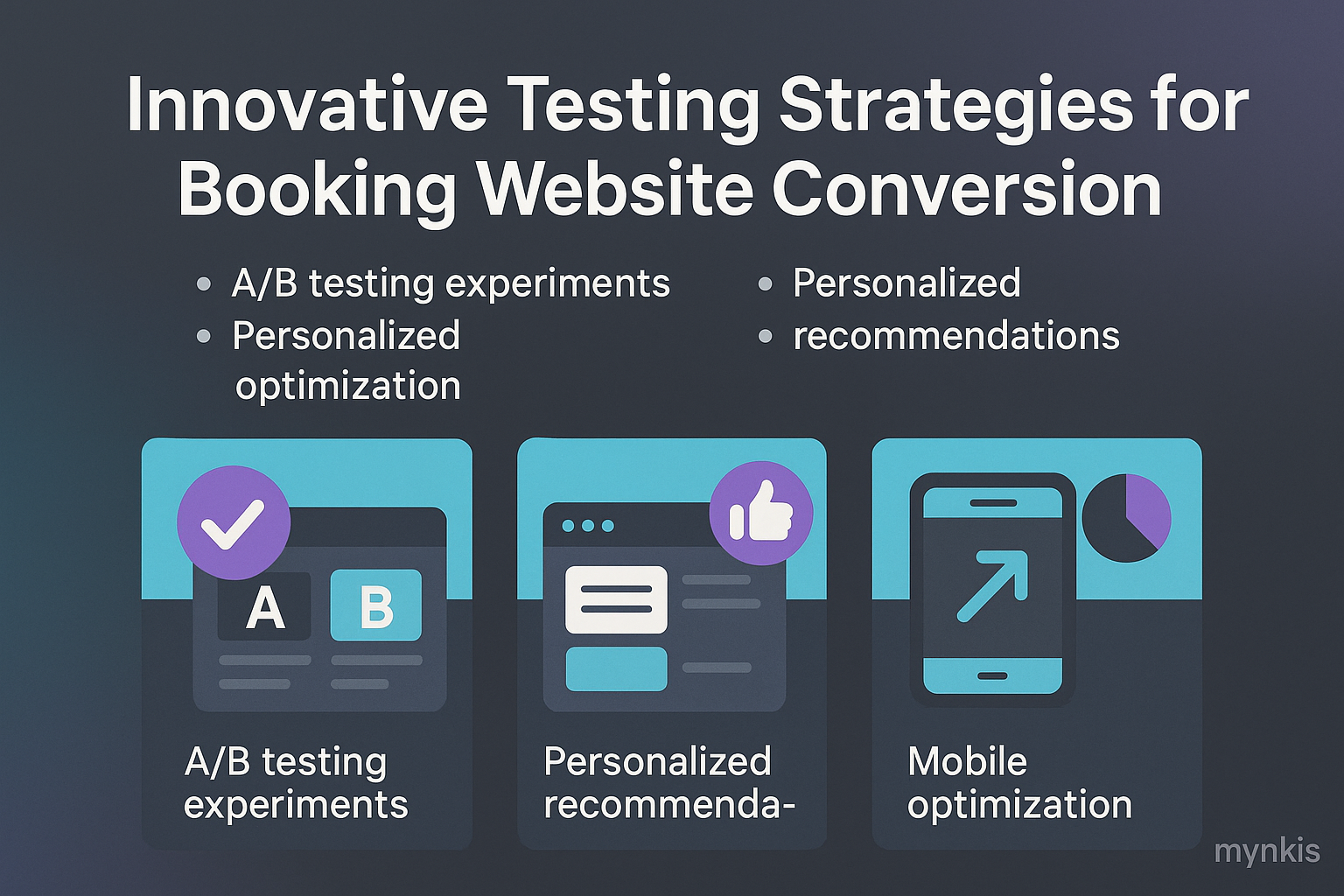Schedule a Demo
Testing is not just a phase; it's a continuous journey in web development. For websites designed for user booking, where the aim is to optimize conversion rates, thorough testing ensures that the site functions smoothly while delivering a seamless user experience. From functionality to performance and beyond, effective testing helps identify and fix issues before they impact your bottom line.
Conversion optimization is crucial because every visitor counts. In my work with operations managers who want to increase booking rates, I've noticed how critical even the smallest changes to the user interface can be. A better flow, a more engaging layout, or faster load times can translate to significantly higher conversion rates, increasing revenue and customer satisfaction.
When developing a booking-enabled website, understanding the different types of testing and their benefits is key. Here's how each plays a role:
Usability testing goes beyond basic functionality checks. For booking-focused websites, examining the user journey from landing to completion of the booking is imperative. Running remote user tests, where participants book appointments from their home environments, has, in my experience, provided invaluable insights. Observing users encounter unexpected error messages or confusing layouts firsthand pinpoints where design needs to be refined for maximum conversion.
A/B testing, the practice of comparing two versions of a web page to see which performs better in terms of conversions, is incredibly beneficial. By tweaking the layout of your booking form or changing call-to-action button colors, businesses I've collaborated with have seen conversion rate increases up to 30%. The trick is to focus on elements directly affecting user decisions during the booking process.
SEO Testing is often overlooked, yet it's a silent driver of traffic to your booking site. Strategic optimization keeps you ahead of competitors while facilitating organic discovery by potential clients. I often advise clients to use tools that check how their booking pages rank for relevant keywords and simulate search engine crawls to ensure all SEO elements are in place before a site goes live.
In a booking website, ensuring the consistency of functionality across all browsers and devices is essential. Automated tests run in the background to catch and report errors before users ever see them. Continuous quality assurance integrates well with agile development methods, allowing developers to adapt quickly to changes and ensure the platform remains reliable for each booking attempt.
As your booking platform grows, maintaining the quality of user experience becomes a challenge. Automated testing emerges as a tool capable of scaling alongside your business. It not only speeds up the development process but also guarantees each user gets a consistent and efficient booking experience, no matter the volume of bookings coming in.
Starting with a clear test plan is a best practice often ignored. Aligning your testing efforts with business objectives, like enhancing user conversion rates, sets a solid foundation. I recommend integrating testing early in the development cycle to catch issues sooner and save resources in the long run. Remember, user feedback is a goldmine—regularly incorporating it into your testing regime can substantially boost your site's effectiveness.
Neglecting mobile testing or overlooking SEO elements are common pitfalls. These oversights can seriously impact user bookings. Each time a mobile user cannot complete a booking due to page errors, potential revenue walks out the door. Ensuring tests cover all devices and prioritize SEO-relevant elements fortifies your site's booking prowess. In my work, I've seen businesses suffer from these mistakes, but proactive testing at every stage can prevent this scenario.
At times, standard testing won't suffice. Advanced techniques like multivariate testing, which simultaneously tests multiple variables, can provide deep insights into user behavior on your booking site. Or, perhaps even implementing AI-driven analytics could refine testing processes, predicting user paths and recommending areas for optimization.
Success in testing for conversion isn't just about fixing bugs. It's also about understanding which key performance indicators (KPIs) signal growth. Look beyond simple conversion rates. Examine your user engagement metrics, such as session duration and pageviews per session, to understand if your site's design compels users to explore more than just the booking page.
The landscape of website development testing continues to evolve, particularly for booking systems. Trends to watch include the rise of real-time analytics for immediate testing feedback and the use of virtual and augmented reality for more immersive usability testing. Keeping an eye on these can give you a competitive edge in creating a booking platform that outperforms.
Lastly, while thorough testing is essential, it's also important not to let it delay your market entry. Lean testing methodologies can help balance thoroughness with speed. I often counsel our clients on the necessity of entering the market swiftly while having a robust testing schedule that doesn't impede progress—delivering timely and reliable booking solutions to the market can make all the difference.
